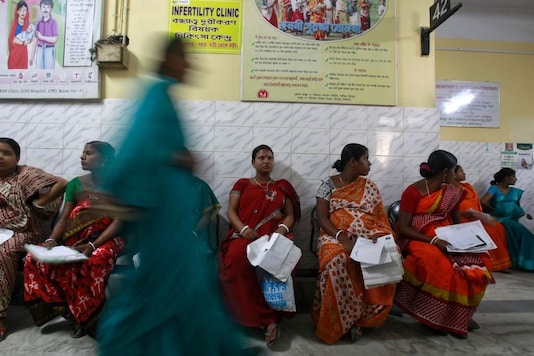The Covid-19 pandemic exposed several fault-lines and socio-economic fissures that we tended to gloss over. It deepened inequalities, worsened prevailing disparities, intensified rifts and made the goal of equity and inclusivity more elusive.
Healthcare systems of most developing nations have been overwhelmed since the outbreak, with entire wards dedicated to Covid-19 patients and a shortage of both staff and resources to look after other fatal diseases. Women have been the hardest hit by the pandemic on all accounts: loss of agency, spiraling cases of domestic violence, emotional stress, mental trauma and utter neglect of sexual and reproductive healthcare.
PCOS quandary
One such ailment that increases the risk of comorbidities and makes a woman more susceptible to Covid-19 is PCOS (Poly Cystic Ovary Syndrome). As per recent estimates, over 20% women in India suffer from it. The numbers speak volumes in themselves, pointing out at the impending crisis and the dire need to tackle it.
While it’s a hormonal disorder that can be treated, if not timely diagnosed, it can aggravate other serious health issues. PCOS makes women more vulnerable to diabetes, high blood pressure, obesity, uterine cancer and other complications. The lockdown and its aftermath has led to reduced physical activity and increased mental stress and more women developing PCOS.
There is a need for a massive campaign to build awareness about PCOS and develop alternative and user-friendly solutions that will enable early diagnosis and enable women to lead safer, healthier better lives.
Ovulation Monitoring
Another common concern faced by women is tracking ovulation cycles. Smartphone apps are the easiest solutions to keep a tab on their ovulation cycles and plan accordingly.
These apps also have additional features that can help track mood and other health related symptoms. Since they collect data related to body temperature, weight, cramps, mood swings, body ache and bloating. While these apps are fast gaining popularity world over, they are yet to be mainstreamed in India.
Easy-to-use and cost-effective access to them will enable women to be more conscious about their health and get routine check-ups done if needed. They also detect any abnormal spikes in any of the parameters. Such apps, if used widely, have a revolutionary potential in empowering women.
Designing reliable apps
There is a plethora of apps, online forums, social media handles that provide information on PCOS and ovulation monitoring and help make elementary diagnosis easier, what needs to be kept in mind is that there should be a robust mechanism to ensure quality, standardization, user privacy and a way to ensure that the information is reliable. As per Privacy International, there have been cases of menstrual and pregnancy tracking apps leaking data to Facebook and other websites, which have been accused of monetizing data by selling it to third-party aggregators. This is an area of concern that needs to be looked into while designing an app for PCOS.
Monash Centre for Health Research and Implementation (MCHRI), Australia developed AskPCOS, the world's first app dedicated to PCOS based on evidence. It was developed with the help of health specialists around the world with inputs from women with PCOS. A similar crowdsourced approach can be followed here to build an indigenous app.
Way Forward
There needs to be broad collaboration between startups, social groups, women’s organizations, philanthropic endeavors, medical professionals, and everyone who wants to contribute to the change. Organizations working on the ground in family planning and sexual health have to double down in terms of both spreading awareness and dispelling myths, stereotypes and eradicating social stigma.
It is said that there are three main pillars of innovation in women’s healthcare: connectivity, accessibility and de-stigmatization. In India, the need of the hour is a mix of a top-down approach that incentivizes tech incubation and promotes start-ups, and a bottoms-up approach that combats pervasive stigma.
Years of hard-won progress in gender equality has been stalled due to the pandemic, and it calls for fresh, innovative ideas and solutions in the domain of women’s healthcare solutions to tackle PCOS. Technology has changed the face of multiple sectors and helped them to reinvent themselves and become more efficient, but the use of tech as a tool for furthering the goal of women’s healthcare is yet to become mainstream in India and FemTech is still to gain ground.
(Author is Central Executive Committee, Family Planning Association of India (FPAI))

